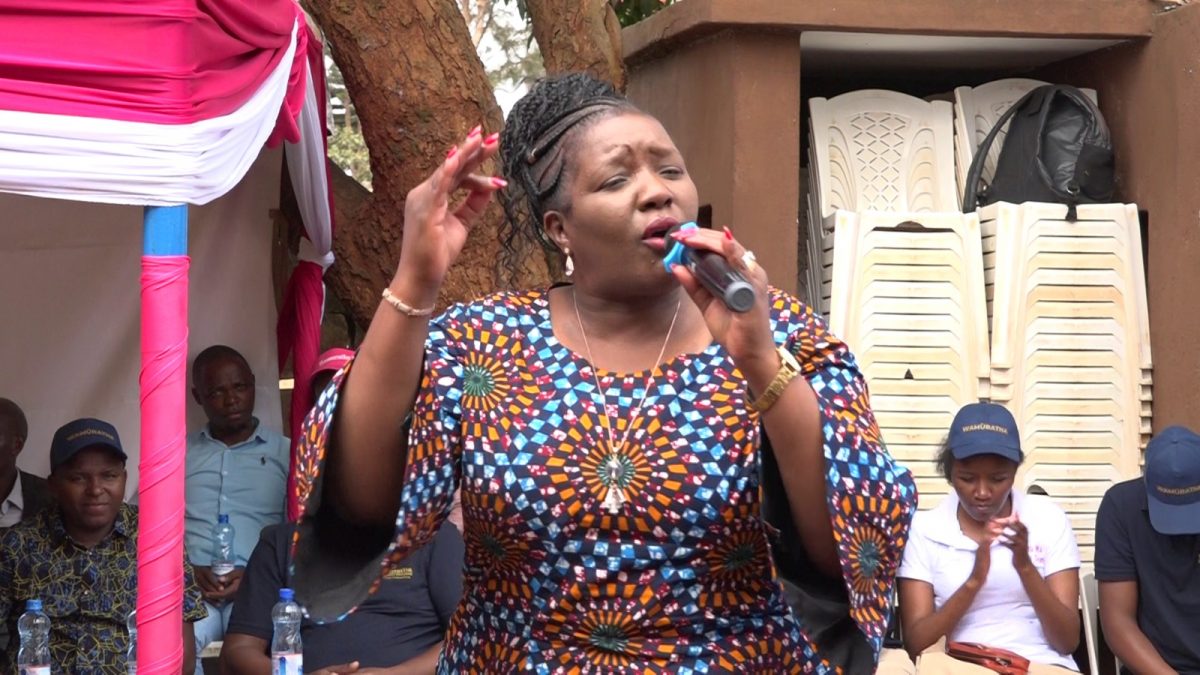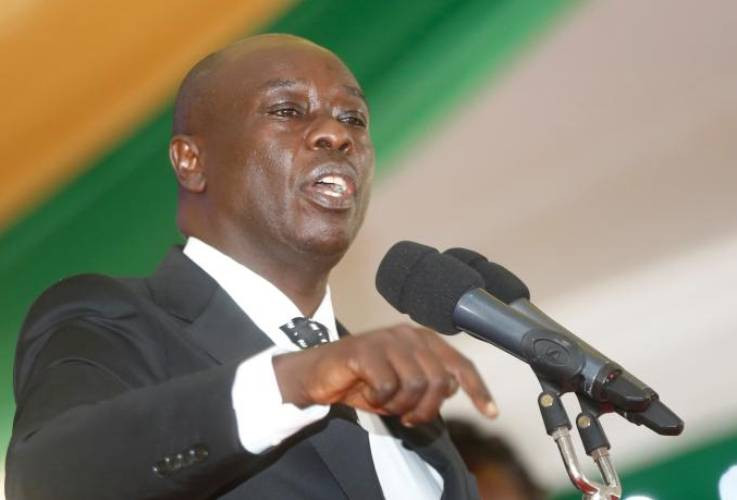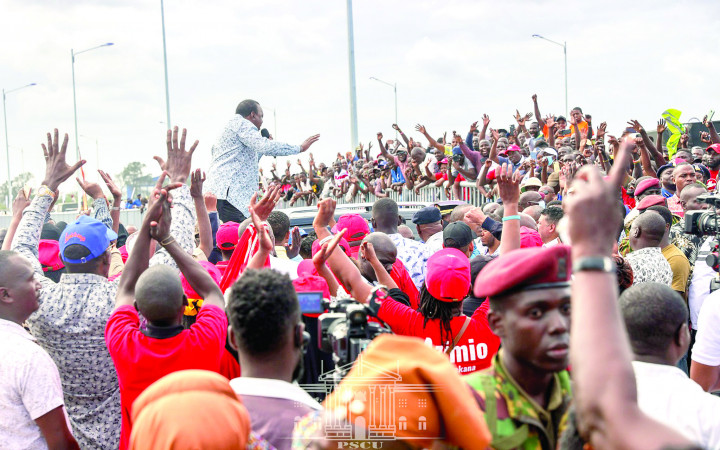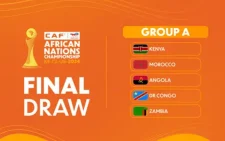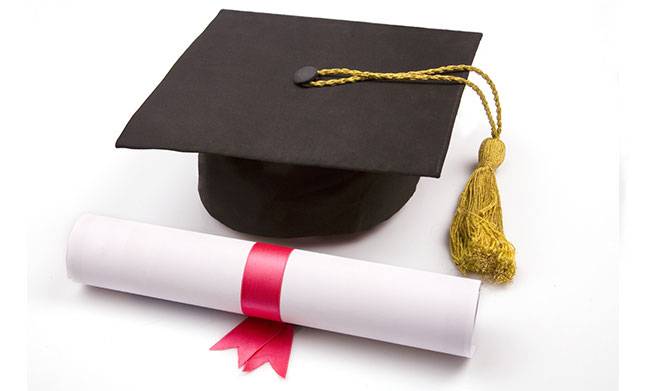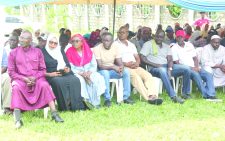Mudavadi reveals what pushed Raila into Handshake
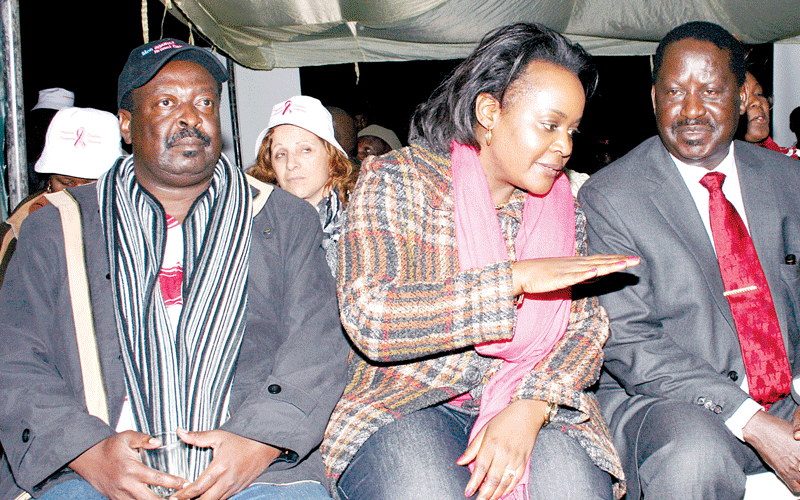
Former Deputy Prime Minister says in his autobiography that rapprochement between President and Opposition leader was a result of pressure from Western missions to place specific embargoes on top Nasa leaders
The mending of fences between President Uhuru Kenyatta and former Prime Minister Raila Odinga through the March 9, 2018 Handshake was the result pressure from Western powers that had embarked on a visa cancellation drive against key members of the National Super Alliance (Nasa) and their families, Amani National Congress leader Musalia Mudavadi has revealed.
In a tell-it-all memoir titled Musalia Mudavadi: Soaring Above The Storms of Passion, the former deputy prime minister and one-time vice-president also discloses that there was no unanimity in the move by Nasa, which had controversially lost the August 2017 presidential election to Jubilee’s Uhuru, to pull out of the repeat poll ordered for by the Supreme Court.
The court had annulled the results of the contest citing “irregularities and illegalities”.
Mudavadi, an unsuccessful 2013 presidential candidate, will launch the autobiography ahead of Christmas in what is seen as a preamble to his second bid for State House in 2022.
In the book, Mudavadi traces his political career from the time he succeeded his father, Moses Mudavadi, as MP for Sabatia, his development under the wings of President Daniel arap Moi, right up to early 2018 when Raila swore himself in as the People’s President and later struck a peace deal with Uhuru.
Surprise handshake
“Unbeknown to the rest of us, Raila had entered into a conversation with Uhuru on the swearing in and on the election fiasco of the previous year. It must have been a very closely guarded secret—indeed it was.
There was not even the slightest hint that anything of this kind could be going on. The Handshake on Friday, 9, March (2018) between the two gentlemen, therefore, came as a total surprise to me.
Earlier that week, I had a chat with Raila. He never mentioned about the Handshake plans. It was on Tuesday evening, at a club where we are both members.
In the same week, we also met for lunch as all the four co-principals to reflect on the aftermath of the swearing-in. We particularly focused on the fact that Nasa was cannibalising itself,” Mudavadi writes.
Visas cancellation
He continues: “Raila also mentioned to us at this meeting that he had received letters of cancellation of his visas by various foreign missions to Kenya.
He showed us a copy of one such letter he had received from a leading Western mission.
He requested me whether I could check with other missions whether they were aware of this kind of development and what their countries’ governments were thinking. He was particularly keen to know what the Americans were planning.
I cross-checked with Ambassador (Robert) Godec, who affirmed that he was aware of the developments and that similar action was not off the cards, with respect to the US.
It was also in the same week that Rex Tillerson, the US Secretary of State came to Kenya and President (Donald) Trump dismissed him while he was still in the country.”
On 10 October, 2017, Raila withdrew from the repeat presidential election. He also announced that he had an “earth-shaking” message that he would deliver on October 25.
“I did not know what this earth-shaking message was, as I had not discussed anything like this with the Nasa presidential candidate,” writes Mudavadi, adding that none of the other Nasa leaders were aware of Raila’s message.
“And, so, like the rest of the country, we waited for October 25, 2017,” Mudavadi writes.
The Amani National Congress leader observes that the four Nasa principals, Raila, Kalonzo Musyoka, Moses Wetang’ula and himself, had not reached a consensus on the repeat elections before the ODM leader’s withdrawal from the race.
“Some of our lawyers had been very emphatic that this would be a grave mistake. We were still pulling on both sides when Raila let us know that he had already written to the IEBC telling them that he was no longer a candidate in this election.
He had asked them to call off the exercise and attend to a platform of minimum reforms and have elections run again after 90 days.
Collective responsibility required that we all own this withdrawal and be enjoined in the call for reforms,” Mudavadi says in his 418-page book.
Despite this setback, Mudavadisays that while some Nasa leaders rallied around Raila, others within their ranks were not fully supportive of the move to pull out of the repeat presidential race.
They argued that the State could manipulate things and go on with the repeat poll. “To minimise the political risks, we called for nationwide demonstrations from the October 11 under the clarion call of ‘No reforms, No elections’.
It is unfortunate that in the process of our campaigns we lost lives through deliberate shooting by the police. The country was palpably tense and sliding into a wrong place,” Mudavadi writes.
After Raila’s withdrawal, a High Court ruling in favour of one of the losers, Ekuru Aukot, that allowed all presidential candidates to participate in the repeat poll, caused more trouble for the Nasa luminaries, a situation Mudavadi says compounded their challenges.
“It would be dishonest to say that this situation did not throw us off balance. It did. We may have put on brave faces in public, but internally we knew that things were not good at all.
The return of these people on the presidential ballot paper particularly messed us up. Some lawyers argued through the media that we had made a huge miscalculation, because the 2013 court advisory that we depended on did not have enough force as to be binding to the IEBC,” the ANC leader observes.
